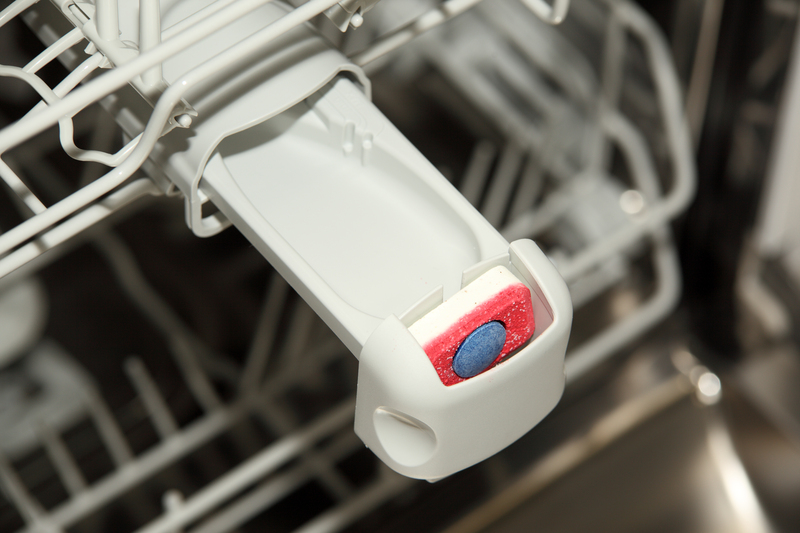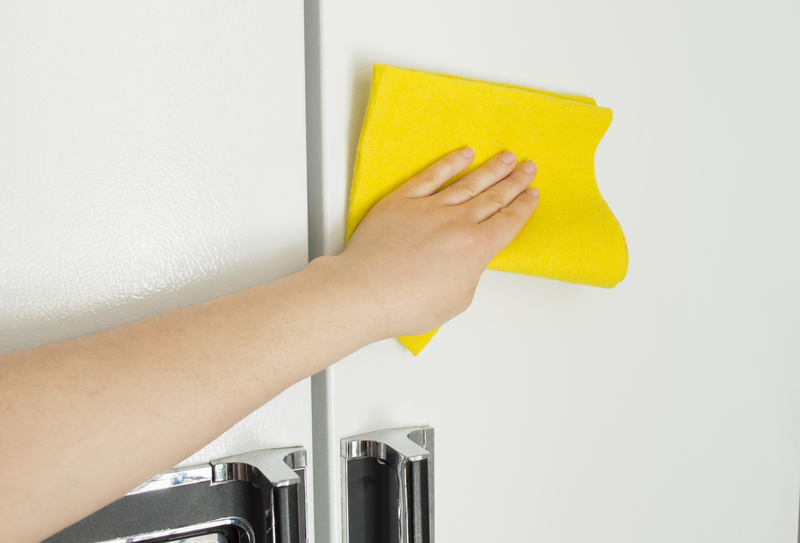Get Your Deposit Back: Tenancy House Cleaning Tips
Posted on 24/06/2025
Moving out of a rented property can be both exciting and stressful, especially when your security deposit is at stake. Landlords and letting agents expect the property to be left in a clean and well-maintained condition. Failing to meet their standards often results in costly deductions from your deposit. To help you avoid disputes and ensure you get your full deposit back, we've compiled the ultimate guide to tenancy house cleaning tips.
Why End of Tenancy Cleaning Matters
Most tenancy agreements specify that the property must be left in the same condition as at the beginning of your tenancy--excluding fair wear and tear. Cleaning is a common reason for deposit deductions, so putting in the effort can make all the difference. Thorough end of tenancy cleaning not only satisfies your landlord, but can also create a positive reference for your next rental.
Landlord Expectations: Clean vs. Pristine
It's important to understand that "clean" doesn't always mean "spotless." However, landlords expect:
- All rooms dusted and vacuumed
- Kitchens and bathrooms sanitized
- No stains or marks on walls, doors, or carpets
- Appliances cleaned inside and out
- Cobweb-free corners and ceilings
Proper cleaning is a major step to securing your full security deposit refund.

Plan Your House Cleaning: Room by Room
The best way to handle tenancy cleaning is with a systematic approach. Start early, gather your supplies, and clean one room at a time. Here's a breakdown for every important area:
1. living room and Bedrooms
- Dust all surfaces: Don't overlook windowsills, shelves, skirting boards, radiators, and light fittings.
- Clean windows: Use glass cleaner for both inside and outside (if accessible).
- Vacuum carpets and rugs: For persistent stains, consider hiring a carpet cleaner or using professional carpet shampoo.
- Wipe down doors and handles, removing fingerprints and marks.
- Empty and dust inside wardrobes and cabinets.
- Check for cobwebs in corners and ceilings; use a long-handled duster for high spots.
2. Kitchen Cleaning: The Hub of Scrutiny
Kitchens are particularly scrutinized during moving out inspections. Here's what you need to do:
- Clean all appliances inside and out:
- Oven: Remove racks and soak them. Use an oven cleaner or a baking soda paste inside the oven. Wipe glass doors meticulously.
- Refrigerator: Empty and defrost, wipe all surfaces and drawers, and leave the door ajar to prevent mold.
- Microwave: Clean the turntable and inside walls using lemon water or vinegar for freshness.
- Wipe counters and cabinets, inside and out.
- Degrease extractor fans and hobs to remove sticky build-up.
- Clean sink, taps and remove limescale stains.
- Check for crumbs and dirt under appliances, including washing machines and dishwashers, if present.
- Empty bins, clean and disinfect them, and replace liners.
3. Bathroom Blitz
- Scrub the toilet, sink, and bath/shower thoroughly.
- Remove limescale from taps, showerheads, and tiles using appropriate cleaners or vinegar.
- Polish mirrors and glass surfaces for a streak-free finish.
- Wipe down towel rails and shelves.
- Clean tile grout--scrub away any mold or discoloration.
- Disinfect any flooring and vacuum any extract fans to remove dust build-up.
4. Hallways, Entrances, and Stairs
- Dust bannisters, skirting boards, and corners.
- Clean light switches and door handles.
- Vacuum or mop all floors, including hidden corners and under stairs.
- Check for and remove cobwebs.
Special Focus: Easy-to-Miss Areas
Some spots can be easily overlooked but landlords often check them carefully. Don't forget:
- Behind and under furniture: Move couches, beds, and tables to vacuum dust and debris.
- Curtain rails, window sills, and the tops of doors and cupboards.
- Light fittings and bulbs: Dust and wipe them, replace any blown bulbs.
- Vent covers and extractor fans.
- Inside drawers, cupboards, and closets--remove personal items and clean inside.
By paying special attention to these areas, you dramatically reduce the risk of cleaning-related deposit deductions.
Tenancy Cleaning Checklist: Must-Have Supplies
To complete a comprehensive end of tenancy clean, you'll need the right tools and products. Prepare these supplies in advance:
- All-purpose cleaner
- Window/glass cleaner
- Disinfectant spray or wipes
- Baking soda and vinegar (natural stain removers and deodorizers)
- Bleach or limescale remover for bathroom/kitchen
- Microfiber cloths and scrub pads
- Mop and bucket, vacuum cleaner, duster
- Rubber gloves and old toothbrushes for detail cleaning
Having these supplies on hand will make every cleaning task easier and more effective.
How to Tackle Stubborn Stains and Trouble Spots
Stains and marks are among the most common reasons for withheld deposits. Whether you're dealing with carpet stains, oven grime, or bathroom mold, here's how to tackle the most challenging trouble spots during your final move-out cleaning:
- Carpet stains: Act quickly with a carpet cleaner or use a mixture of baking soda and vinegar. Blot, don't rub, and repeat if necessary. For tough stains, consider renting a carpet-cleaning machine.
- Wall marks: Use a magic eraser or a mild soapy solution, but avoid harsh scrubbing that could damage paint.
- Oven build-up: Apply a thick layer of oven cleaner or a baking soda paste, leave overnight, then scrub away the grime the next day.
- Bathroom mold: Use an anti-mold spray or a mix of bleach and water, ventilate well, and scrub grout lines with an old toothbrush.
- Limescale: Apply vinegar or a commercial descaler to taps, showerheads, and kettle insides, rinse thoroughly.
Avoiding Common Cleaning Mistakes
To ensure your hard work doesn't go to waste, avoid these typical errors during your tenancy move-out cleanings:
- Ignoring the inventory report: Compare the original inventory with the current state of the property to spot missed issues.
- Rushing the clean: Last-minute cleaning often means essential areas are neglected. Start at least a week in advance.
- Neglecting professional cleaning where required: Some contracts specifically require professional services for carpets, upholstery, or windows. Keep receipts as proof.
- Leaving personal belongings or rubbish behind. Removal costs may be deducted from your deposit.
- Forgetting outdoor areas: If your rental includes a garden, balcony, or garage, tidy, sweep, and remove waste.
When to Hire Professional Tenancy Cleaning Services
Should you clean yourself or hire the professionals? If you have limited time, a large property, or your letting agent requires professional cleaning, hiring end of tenancy cleaners may be the best option. Here's what to look for:
- Check reviews and testimonials to ensure reliable service.
- Confirm what's included: some companies offer guarantees if the landlord isn't satisfied.
- Request an itemized receipt, especially if your lease requires professional cleaning proof.
- Book in advance, as reputable companies can get busy at peak moving times.
Remember: The cost of professional cleaning is often far less than potentially losing a portion of your deposit. Always weigh your time, budget, and lease requirements before deciding.
Document Your Work: Protect Your Deposit
After your end of tenancy house cleaning is complete, take time to:
- Photograph each cleaned area: These will be invaluable if there is a dispute about the cleaning standard.
- Request a walk-through inspection with your landlord or agent before you hand back the keys.
- Keep all receipts and invoices related to cleaning or repairs.
Thorough documentation is the final step in ensuring your efforts are recognized, and your deposit is returned in full.

Bonus Tips: Quick Wins for Deposit Return
- Replace any burnt-out lightbulbs and batteries in smoke detectors or remotes.
- Patch small holes from picture hooks with filler and touch-up paint--if in doubt, check your lease or ask your landlord first.
- Ensure all keys, manuals, and remotes are returned as per your inventory.
- Double-check the garden, loft, or sheds for forgotten items or trash.
- Allow time for drying after cleaning carpets or floors to avoid new marks.
Conclusion: Take Charge of Your Deposit Return
End of tenancy cleaning is one of the best investments you can make to secure your security deposit refund. With preparation, the right supplies, and a systematic approach, you'll leave the property looking immaculate--ready for inspection and new tenants.
Remember, your deposit is your money: follow these tenancy house cleaning tips, document your work, and don't be afraid to clarify expectations with your landlord. There's nothing quite as satisfying as moving into your new place, knowing you've left your old one spotless--and that your full deposit is safely on its way back to your bank account.
Good luck with your move, and happy cleaning!
Latest Posts
Is Steam Cleaning Safe for Your Leather Sofa?
Achieving an Allergen-Reduced and Dust-Free Living Space
Easy Ways to Ban Damp Smells from Your Home
Transform Your Space: Spring Clean with Our Comprehensive Checklist
Crafting a Consistent House Cleaning Regimen: Your Path to Tidiness




